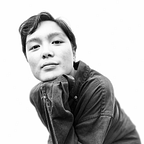Being a farmer is hard work
And a thank you to everyone along the way
My life as a farmer in Singapore started off working in an indoor facility complete with air conditioning and hazmat suits. I rode this high for about a week before my boss made it clear that in order to learn, I had to start from step one. And step one of hydroponics is primitive.
As part of my internship, I spent the consequent few weeks in this shipping container to understand how it could possibly grow food.
Admittedly, at first I was frustrated, hot, tired, annoyed, sweaty to do as much manual labour as I did. Cleaning up algae in a 40 degree shipping container isn’t as sexy as the hydroponic farming I originally signed up for. But I knew I had to suck it up because I was learning, learning in a way that was uncomfortable. I was far removed from the sterile spaces of pre-trimmed plants and organized seeds that university had offered me.
I’ve never been much of a hardware person, but this summer forced me to learn how to be. I worked with my hands, scraping algae off of plastic sheets and toying with PVC pipes, trying to understand how water most efficiently flows throughout the shipping-container-turned-indoor-farm. I spent weeks nurturing crops from seed to harvest, individually planting hundreds of leafy greens and herbs, carefully documenting their progress each step of the way like a parent takes to their child.
I’m grateful to have received knowledge from diverse groups of people. I worked with aunties and uncles (elderly, semi-retired Singaporeans) who propagated plants all day long and knew every ornamental plant in our nursery by name. I learned from the migrant workers (employed by my company for 8+years!) who knew the perfect mixture of growing media that would allow plants to thrive more than I ever would.
I witnessed how different cultures can be celebrated and respected alongside one another. My coworkers effortlessly floated across three languages, employing a ‘thank you’ in the language appropriate to the person on the other end of the conversation. The other interns at work taught me Singlish — universal across the country. But Singapore has too, taught me how this can be messy and far from the racial harmony it has proposed.
Being a farmer is hard work. I can only truly say this from the perspective of a mediocre urban hydroponic farmer growing (mostly) kale in Singapore, but I think this perspective warrants enough to confidently project that statement on behalf of anyone who works tirelessly to grow food.
It’s a type of work that has to be done, and in the coming decades, needs to be done in a way that is incredibly more productive (for the sake of our growing population) and incredibly less destructive (for the sake of our planet).
Still not sure how we’re going to get there. I’ll let you know when something feels promising.
